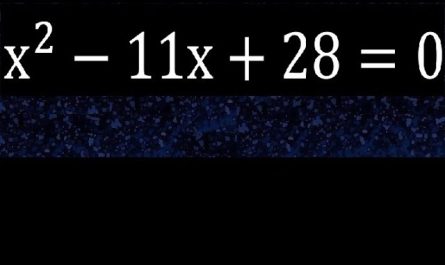An MBA certification is highly sought after and considered one of the most lucrative qualifications in the business world. Whether you are a fresh college graduate or an experienced professional, pursuing an MBA program can enhance your management skills and open doors to prestigious corporate brands. However, with numerous top MBA entrance exams available, it’s important to understand the differences among them to make an informed choice. In this blog, we will explore the top MBA entrance exams in India and uncover the distinctions between them. Volunteer Abroad
Common Admission Test (CAT):
The Common Admission Test, conducted by the Indian Institute of Management (IIMs), is widely accepted by various MBA colleges across India and known as the top mba entrance exam. CAT features a dynamic examination pattern that changes each year, with sections like Verbal Ability and Reading Comprehension, Data Interpretation and Logical Reasoning, and Quantitative Ability. The exam is known for its competitiveness and serves as a gateway to the esteemed IIMs.
Xavier Aptitude Test (XAT):
XAT is conducted by XLRI Jamshedpur and is recognized by several top-tier MBA colleges in India. The exam consists of sections like Verbal and Logical Ability, Decision Making and Quantitative Ability, English Language and Logical Reasoning, General Knowledge, and Quantitative Ability & Data Interpretation. XAT is known for its focus on decision-making skills and is highly regarded by MBA aspirants.
Indian Institution of Foreign Trade (IIFT):
IIFT conducts a paper-based entrance exam for its International Business MBA program. The exam features sections such as Data Interpretation, Logical Reasoning, General Awareness, Verbal Ability, Reading Comprehension, and Quantitative Aptitude. IIFT is renowned for its specialized focus on international business education and attracts candidates interested in this domain.
NMAT:
NMAT, conducted by the Graduate Management Admission Council (GMAC), is accepted by renowned institutions like NMIMS, SPJIMR, IBS, TAPMI, among others. The exam assesses candidates in sections such as Quantitative Skills, Language Skills, and Logical Reasoning Skills. NMAT offers flexibility in terms of exam dates and allows multiple attempts
Graduate Management Aptitude Test (GMAT):
GMAT is a globally recognized as the best entrance exam for MBA conducted by the Graduate Management Admission Council (GMAC). Unlike other MBA entrance tests, GMAT scores are valid for five years and can be taken multiple times in a year. Candidates are evaluated in parts such as Analytical Writing Assessment, Integrated Reasoning, Quantitative, and Verbal. GMAT scores are accepted by various MBA programs worldwide.
Common Management Admission Test (CMAT):
Conducted by the National Testing Agency, CMAT is a 3-hour exam for admission to various management degree programs. Language comprehension, quantitative techniques and data interpretation, logical reasoning, and general awareness are all included. CMAT is known for its wide acceptance by MBA colleges in India and is a popular choice among candidates.
MICA Admission Test (MICAT):
MICAT is conducted by MICA, known for its specialised programs in Strategic Marketing and Communications. After appearing for CAT, GMAT, or XAT, candidates need to qualify for MICAT, which evaluates them through sections like Psychometric Test, Descriptive Test, General Knowledge, Divergent-Convergent Reasoning, and Verbal Ability. MICAT emphasises creative thinking and is ideal for candidates interested in the field of marketing and communications.
Conclusion:
Aspiring MBA candidates need to recognize the differences among the top MBA entrance exams in India. Each exam varies in terms of the examination pattern, sections, marking system, eligibility criteria, and validity of scores. Understanding these distinctions is crucial for selecting the right exam that aligns with one’s career goals and aspirations. By making an informed decision and tailoring their preparation accordingly, candidates can enhance their chances of success and secure admission into their desired MBA program.
